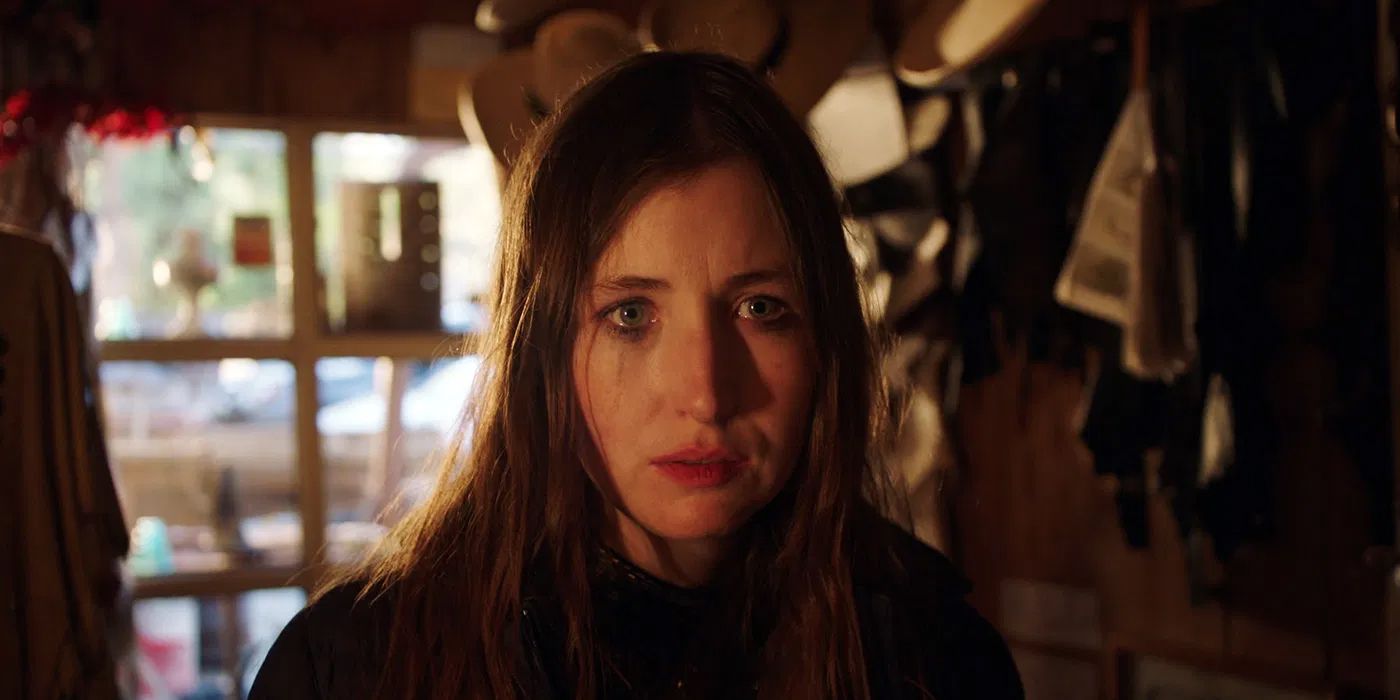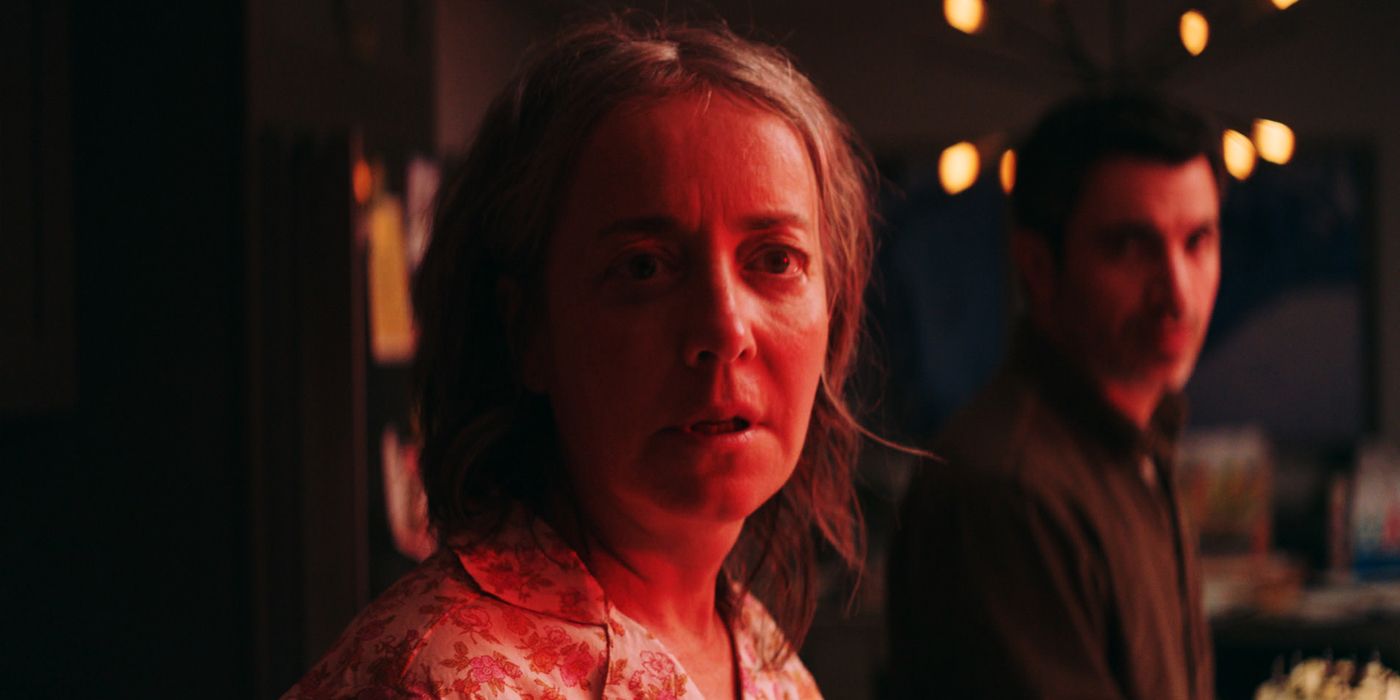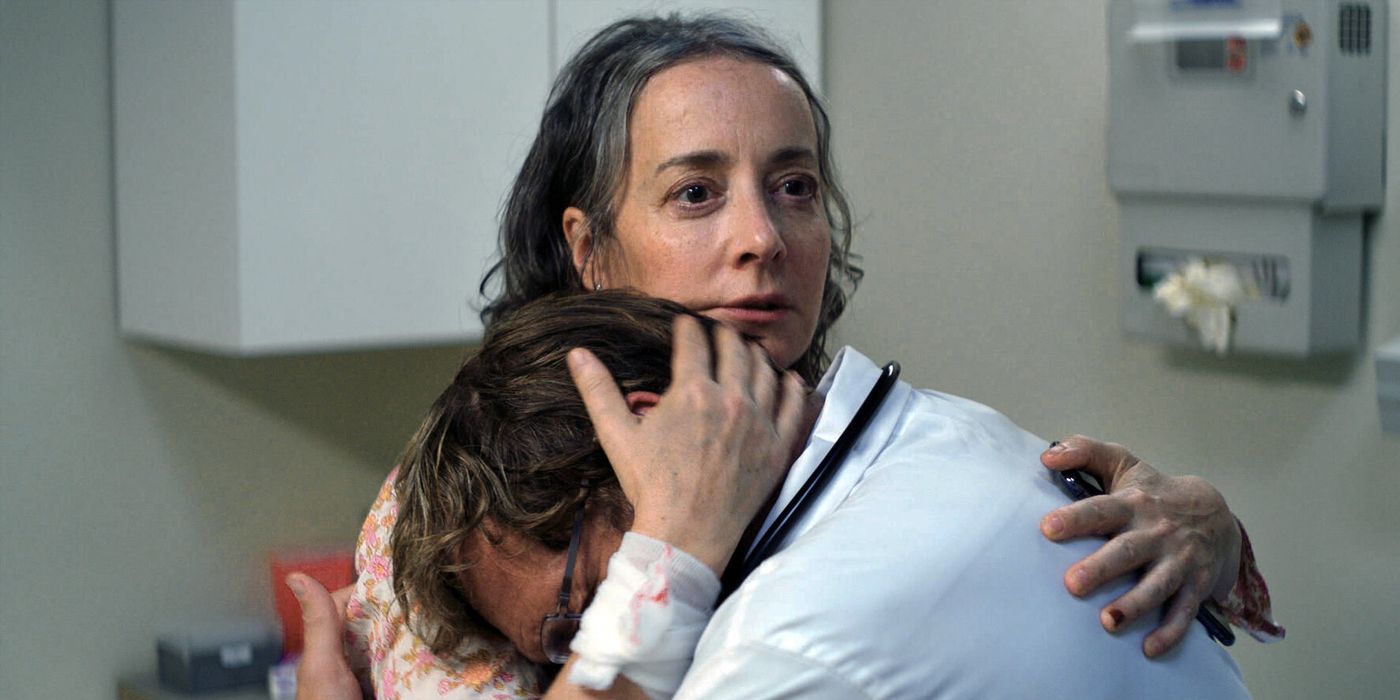She Dies Tomorrow (2020), written and directed by Amy Seimetz (Alien: Covenant), follows recovering alcoholic Amy (Kate Lyn Sheil), who seems to have contracted a very strange infectious disease. However, this is not a typical contagion film, nor is it a typical horror movie, and most of it is open for interpretation. In most other films where a contagion plays a central role, such as I Am Legend and 28 Days Later, Amy would be infected by something that either makes her physically sick or kills her. In She Dies Tomorrow, however, Amy is infected by something far more powerful—an idea—and the results are chilling.
The nature of Amy's infection can be seen as one of the mind, not of the body. She wakes up every day believing that she will die tomorrow, and she not only believes it—she is certain of it. She seems to be distraught about her impending death, and at first, the horror movie seems to be simply about the fear of death. However, Amy never does die—at least not onscreen—and this is the first piece of evidence that the horror movie is not actually about the fear of dying. Instead, it's about the fear of living, or in other words, it's about living a life of regret.
Regret is directly referenced in the movie in a flashback scene where Amy's lover Craig (Kentucker Audley) asks her if she has any regrets. She answers by saying she regrets having terminated a pregnancy when she was in her 20s. She quickly retracts the statement, saying that she would never have been able to buy a house if she had become a mother. However, the scene takes place right before she becomes infected, so it is a statement about how she has lived her life up to that point.
She Dies Tomorrow's Real Disease Is Regret
The second piece of evidence for this is that Amy begins to take her imminent death somewhat in stride. She becomes very adventurous because of the infection. Thinking that every day is her last, she starts doing things that she always wanted to. This doesn't mean that she doesn't feel sadness about her imaginary fate, however, and that's the whole point of the movie: the infection reveals to her that she has not been living her life to the fullest, and that is what scares her, not death. Thanks to the infection, she realizes that she has been afraid to truly live and that she has been living a life of regret as a result. In this way, the infection is both a cure and an illness.
The infection causes Amy to live her life more fully, despite it also creating feelings of sadness and confusion. However, when the infection spreads from Amy to her friend Jane (Jane Adams), Jane reacts in a different way. She becomes more introspective and analytical and begins to face her darkest fears. In one scene, she talks about her fear of people wanting to randomly attack her on the street, an irrational fear that she seems to usually keep quiet about. She also stops caring about her appearance and begins to wear pajamas everywhere.
Similarly, when the infection spreads from Jane to her brother Jason (Chris Messina) and his circle of friends, they all have reactions different from Amy's. Jason and his family actually seem to become closer and profess their love for each other because of the infection. Their friends Brian (Tunde Adebimpe) and Tilly (Jennifer Kim) finally reveal to each other that their relationship has been dead for a long time. Brian, as an act of kindness, finally turns off his comatose father's life support—the movie's most memorable death scene, and perhaps its only one.
These different reactions are the third piece of evidence that the movie is about living a life of regret. Arguably, almost everyone would live differently if they were convinced that they were going to die tomorrow. The choices that people would make in such a situation have a direct relationship to their regrets. Since Amy regrets not living her life more fully, that's what the infection inspired her to do. Jane regrets hiding from her fears, so the infection inspired her to talk about them and face them. Jason and his family as well as Brian and Tilly regret not telling each other how they really feel, so the infection inspired them to do so. From this perspective, it is easy to see that She Dies Tomorrow's real disease is regret.
She Dies Tomorrow Is Also About Society And The Mentally Ill
While the characters of She Dies Tomorrow react to the infection in direct response to their regrets, their behavior before getting infected creates a subtext about how society at large treats the mentally ill. When Amy tells Jane that she is not just relapsing but that she is definitely going to die tomorrow, Jane does not believe her. Her reaction to Amy is borderline callous and at least very self-centered. She tells Amy that she is just relapsing and that she doesn't have time for that. She is too preoccupied with her own petty worries to empathize with what Amy is saying, despite her being a known alcoholic.
Similarly, when Jane explains to her friends at a dinner party that she herself is going to die tomorrow, their varied reactions range from incredulity to outright rage. Jason's wife, Susan (Katie Aselton) in particular wants to hear nothing of it. It's her birthday, and she tells Jane that she needs to stop ruining it for her. She also bluntly states that Jane always tries to make everything about herself and her problems. If Jane's character did repeatedly behave in such a way, Jason's wife could have been more compassionate, as such behavior is often a cry for help.
These reactions to the infected in She Dies Tomorrow are a commentary on how society as a whole patronizes the mentally ill, especially those who suffer from depression and other less visible afflictions, expecting them to solve their own problems "like everyone else".



